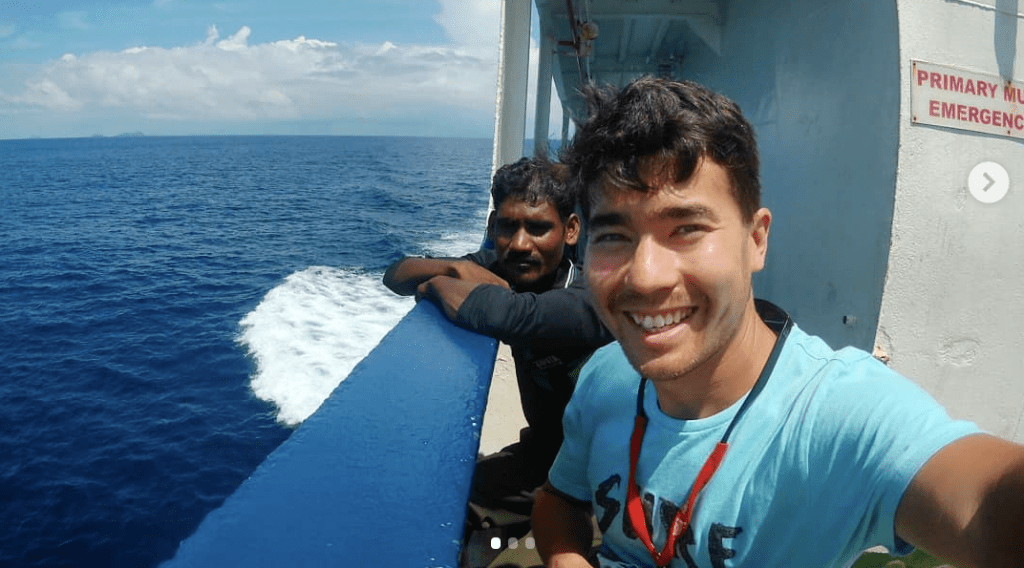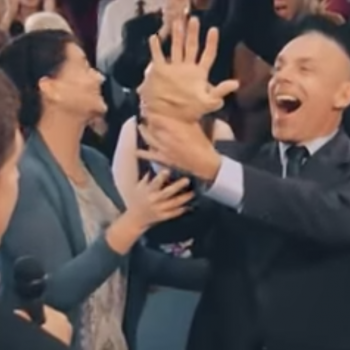Ed Stetzer, the dean of Missions at Wheaton College and one of the more prominent names in evangelicalism today, has written a column for the Washington Post asking what many have been wondering ever since John Allen Chau was killed by an isolated tribe while trying to share the Gospel with them: Are missionaries foolish?
In defending Chau, Stetzer points out that he didn’t just wander onto the island with no preparation; it’s the opposite. He suggests that Chau was a victim of the Sentinelese rather than a victim of his own ignorance.

In his journal, Chau used the word “holler” to describe what he did after sneaking onto the beach of the remote North Sentinel Island in a kayak. The scene of the young American yelling, in English, “My name is John. I love you, and Jesus loves you,” before being killed by a bow and arrow isn’t the most sophisticated image of missionary outreach in 2018.
But new information released Wednesday paints a more complicated picture of Chau, including an interview with Christianity Today. In the interview, Mary Ho, who leads All Nations (the agency that sent Chau on missions), indicated that he was heavily vaccinated and even quarantined before going on the mission.
The Washington Post reported Tuesday night that Chau also undertook linguistic and medical training to prepare for the outreach. These new reports at a minimum challenge the simplistic image of an adventure-seeking zealot willing to recklessly risk the lives of a remote group of islanders.
Right off the bat, Stetzer seems to misunderstand the biggest criticism leveled against Chau. It wasn’t just that he was unprepared — or at least, not prepared in any meaningful sense (although that is part of it). The larger debate is about whether it’s right for foreigners to essentially invade someone else’s turf to tell them that their belief system — probably their entire way of living — is wrong, and that they need to embrace a Western religion or be tortured for eternity.
But since his entire belief system revolves around the idea that mission work is essential, Stetzer finds it all but impossible to question the underlying wisdom of it.
Chau’s intent — according to others I’ve spoken with who knew him, went to school with him and helped him prepare — was to live among the North Sentinelese, learn their language, attend to their physical needs and then seek to share his faith with them. Obviously, the long-term strategy did not work, and Chau will become not only a topic of debate but of study for missiologists, people who train missionaries. That’s my field. I have a PhD in the subject and have trained missionaries to go to many places, including India. I am also the dean of the mission school at Wheaton College, where we unapologetically and enthusiastically train missionaries to engage their own cultures, as well as cross-culturally, from their culture to another.
And even for me, even with the new details, Chau’s case is complex. It reveals more than anything the quandaries for those of us seeking to understand what it means in 2018 to share the gospel with all nations.
It’s not that complex. It’s only complex for Stetzer because he has to reconcile unwanted religious intrusions with Christian glory.
For the rest of us, another worthwhile debate is just how much religion is tied to one’s culture. It would be difficult to explain U.S. culture, for example, without mentioning Christianity in some shape or form. That’s not to say we’re a “Christian nation,” but rather a nation with a lot of Christians. Stetzer seems to think that it’s easy to separate the two, but I’m not sure it’s that simple. Christians throughout the ages have also lacked a solid understanding of what is “biblical” versus what is part of their own respective cultures. Christianity in the United States looks quite different than Christianity in South America, the Middle East, and Europe. It’s the U.S. evangelical form he wants to spread.
Many Christians would say we deny the missionary call if we neglect the hard and difficult places in the world. We are truly called to go to “the ends of the earth” with the gospel…
It is clear that Chau was a committed Christian and wanted others to be the same. His last entry says, “You guys might think I’m crazy in all this but I think it’s worthwhile to declare Jesus to these people.” From the perspective of much of Christianity through history, and millions of believers today, his motivation was good. But the conversation generated by his death focused more on his preparation and community.
Yes, the Great Commission is integral to the Christian life. At the same time, the Bible isn’t clear on just how much Christians should be willing to risk their lives for that cause. In Chau’s case, the risks were obvious and that included risks to the very people he wanted to preach at. By any logic, they should have outweighed any possibility of success. People are far more useful when they’re alive than dead. If a missionary trip turns out to be a suicide mission, maybe the people involved should consider a different theological career path.
For some, the very idea of trying to convert others to a certain faith and taking any risk to do so is simply abhorrent. But Christians worldwide genuinely believe that people who hear and respond to the gospel are better off when they do.
As an Episcopalian, I would argue there are much more effective ways to share the gospel than what Chau did. But that’s just me.
After Chau’s family and friends have mourned and the media attention has died down, mission agencies need to consider the lessons from this moment. There are things that I, as a missiologist, and others prefer Chau would have done differently.
For example, when Jesus sent his disciples, he instructed them to pray and then go, while showing them how to honor the dignity and humanity of others’ choices. He also sent his disciples out two by two. The Bible has much to say about the importance of teams and community. Teams bring collective discernment and provide a safeguard against unwise attempts at missionary endeavors. According to Ho, there was a team willing to go with Chau, but he chose to go alone.
The problem with Chau’s trip wasn’t that he didn’t drag enough people to their deaths; it’s that he went at all and that there were Christians egging him on. Again, Stetzer is side-stepping these larger issues of the missionary debate. The Bible also says to shake the dust off your feet if the recipients of your message aren’t interested in hearing it, so where’s that message?
So, what is the modern missionary to do? In today’s world, the missionary mind-set itself is a modern-day heresy. However, it is still the teaching of Jesus and cannot be erased from the pages of the Bible.
The Great Commission can’t be removed from Christianity, no. But more Christians need to consider whether their mission trips are in fact attempts at colonialism (the nasty effects of which are peppered throughout history), or whether they should change their methods, like maybe focusing more on people’s needs in this life instead of the next.




It’s Moving Day for the Friendly ..."
It’s Moving Day for the Friendly ..."
It’s Moving Day for the Friendly ..."
It’s Moving Day for the Friendly ..."